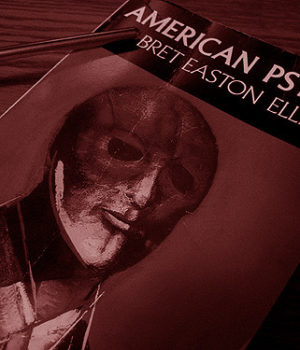Written by Ethan Perritt
The Great American Novel. It’s what every author aspires to write but most will never achieve. There are, however, a tiny percentage that do. So in comes Bret Easton Ellis, a young writer with just two novels under his belt—and he does just that. American Psycho is the Great American Novel. It follows Patrick Bateman, a yuppie, Wall Street office hound who just so happens to have a penchant for murder on the side. Through this, the reader gets a brilliant commentary of Reagan-era America. Depictions of racial inequality, materialism, and more blatant racism give a good look at the cultural zeitgeist of the time.
In essence, the novel captures everything about the late 1980s, wraps it up, and then hands it to the reader and says, “Go form an opinion.” The novel ends abruptly, Bateman sitting at a table monologuing to the reader after a series of murders, recognizing his confession has meant nothing. It’s ironic, then, that the reader can extrapolate so much from this supposed nothingness.
But the novel is also a personal statement about the author himself. Ellis was able to take his commentary on 80s politics and criticize his inherent consumerism. When this is all put together, it’s nothing short of genius. From an aesthetic perspective, American Psycho is the perfect example of postmodernism — the pervasive philosophy of the time. And if the Great American Novel is a novel of outstanding literary merit that manages to capture the culture of the US at a certain time, I would contend American Psycho is just that. While Ellis’ work hasn’t yet been accepted into the literary canon, I believe we’re not too far from that happening. And when it does, American Psycho will be at the forefront of the list of novels claiming the title of Great American Novel.




